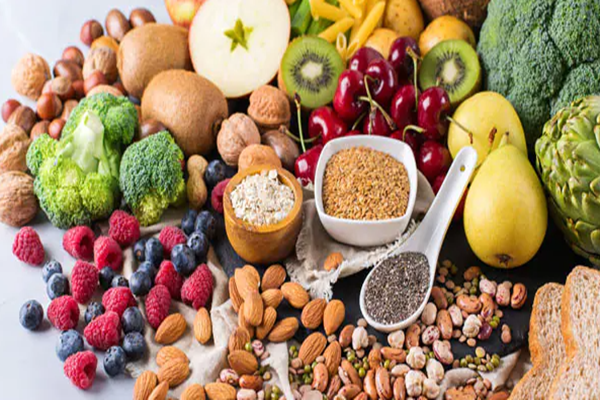Every person should eat a balanced, healthful diet. It should contain all the nutrients in the right proportions that the body needs for everyday operations.
However, growing youngsters and menstrual, pregnant, or nursing women have even higher dietary requirements.
In addition to wearing more layers of clothes to stay warm throughout the winter, Consuming a balanced diet and meeting your body's increased nutritional needs is critical to support your metabolism, energy levels, and other factors.
In this post, you will learn what kinds of nutrients you need to add to your winter diet:
Vitamin C
Vitamin C is known for boosting immunity and is a necessary ingredient that helps stave off illnesses like the flu and the common cold during this time of year.
Enough vitamin C in the body lowers the risk of heart disease, protects memory, lowers the risk of chronic diseases, lowers blood levels of uric acid, and helps control high blood pressure.
Vitamin C's ability to increase immunity is particularly useful in the post COVID-19 era and throughout the winter months.
When consumed in sufficient amounts, vitamin C helps shield the body from viral infections, colds, coughs, and flu. Experts advise consuming citrus fruits, including oranges, strawberries, lemons, and kiwis, to keep vitamin C levels in the body stable.
Iron
The nutrient iron gives our favorite cartoon character, Popeye, his size and strength. It is a strong structural component of the body.
The body needs iron for the creation of DNA and the movement of oxygen. In the winter, humans need iron more than anything else because it helps their cells absorb oxygen and keeps us energized all day.
B-12 vitamin
Your mood greatly depends on vitamin B12. Consuming nutrients like vitamin B12 can prevent seasonal affective disorder (SAD).
An annual recurrence of seasonal affective disorder (SAD), usually in the winter, is well-known. Because it creates mood-regulating chemicals in the brain, vitamin B12 helps you fight this illness and keeps you happy.
Vitamin E
There are eight different forms of Vitamin E, a fat-soluble vitamin that functions as an antioxidant.
Keeping the body's levels of vitamin E in check lowers the risk of cancer, reduces oxidative stress, controls diabetes, prevents eye-related illnesses, and helps alleviate osteoporosis symptoms.
Because vitamin E is so nutritious, it is vital to many skin care and hair care treatments.
This vitamin becomes even more important during the winter when the air is dry. A deficiency of moisture in the air harms your skin and hair.
Eating vitamin-rich foods like almonds, cashews, cauliflower, sunflower seeds, pumpkin seeds, and almonds can fuel your body and help you maintain appropriate amounts of this vitamin.
Vitamin A:
An organic antioxidant that's crucial to the body's healthy operation. This vitamin helps prevent diseases like night blindness and vision deterioration and supports healthy eyesight.
This vitamin helps to prevent several types of cancer and guarantees that the immune system is operating properly.
This vitamin promotes strong bones and helps stave off joint pain associated with the winter months. Foods including spinach, carrots, sweet potatoes, pumpkin, and flax seeds enhance reproductive health and immunity.
Final Words:
The points mentioned above suggest the importance of adding important nutrients to your winter diet. These nutrients can help you during the winter season and also improve your long-term health.








No comments
Post a Comment